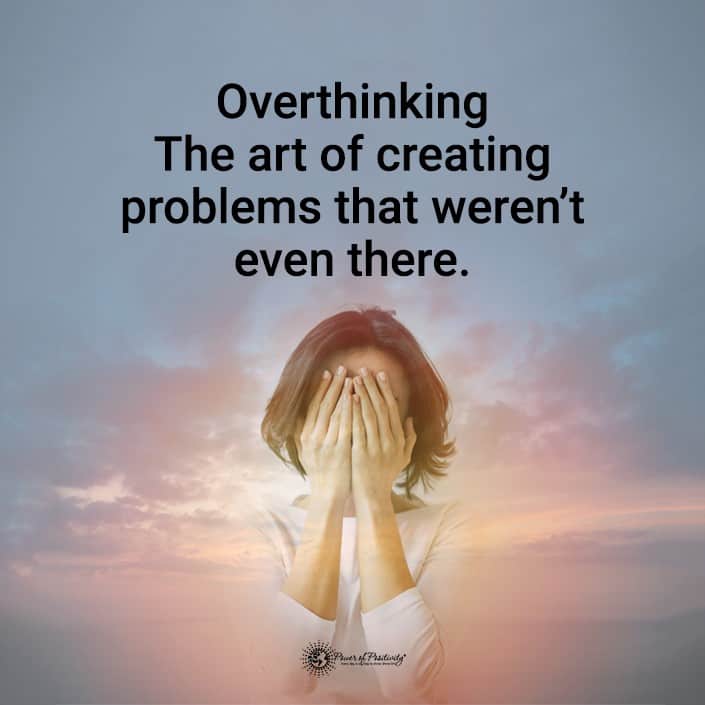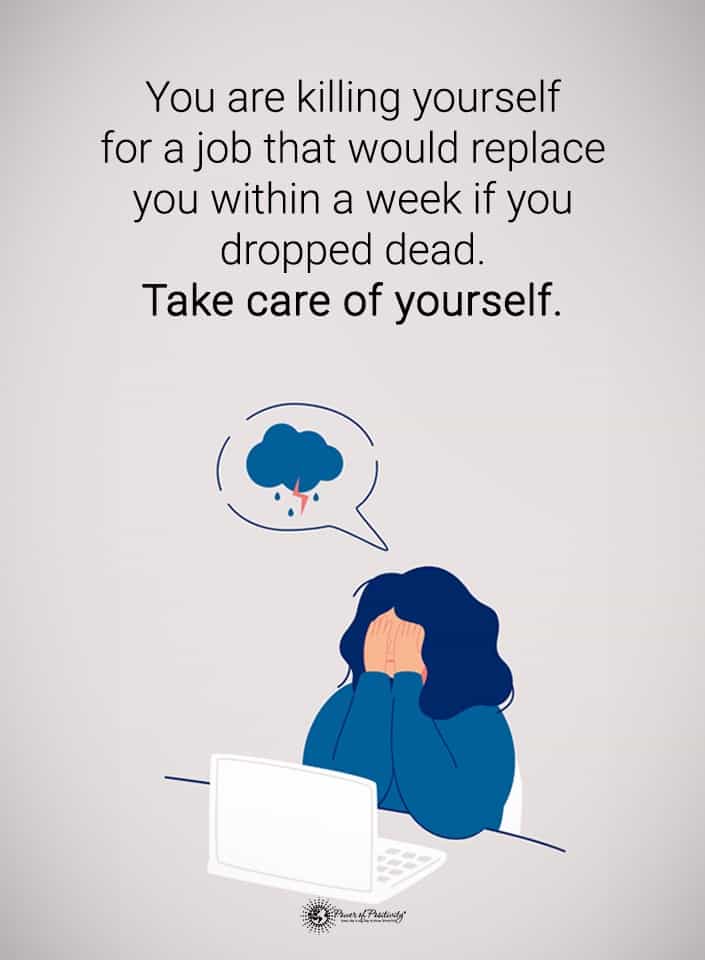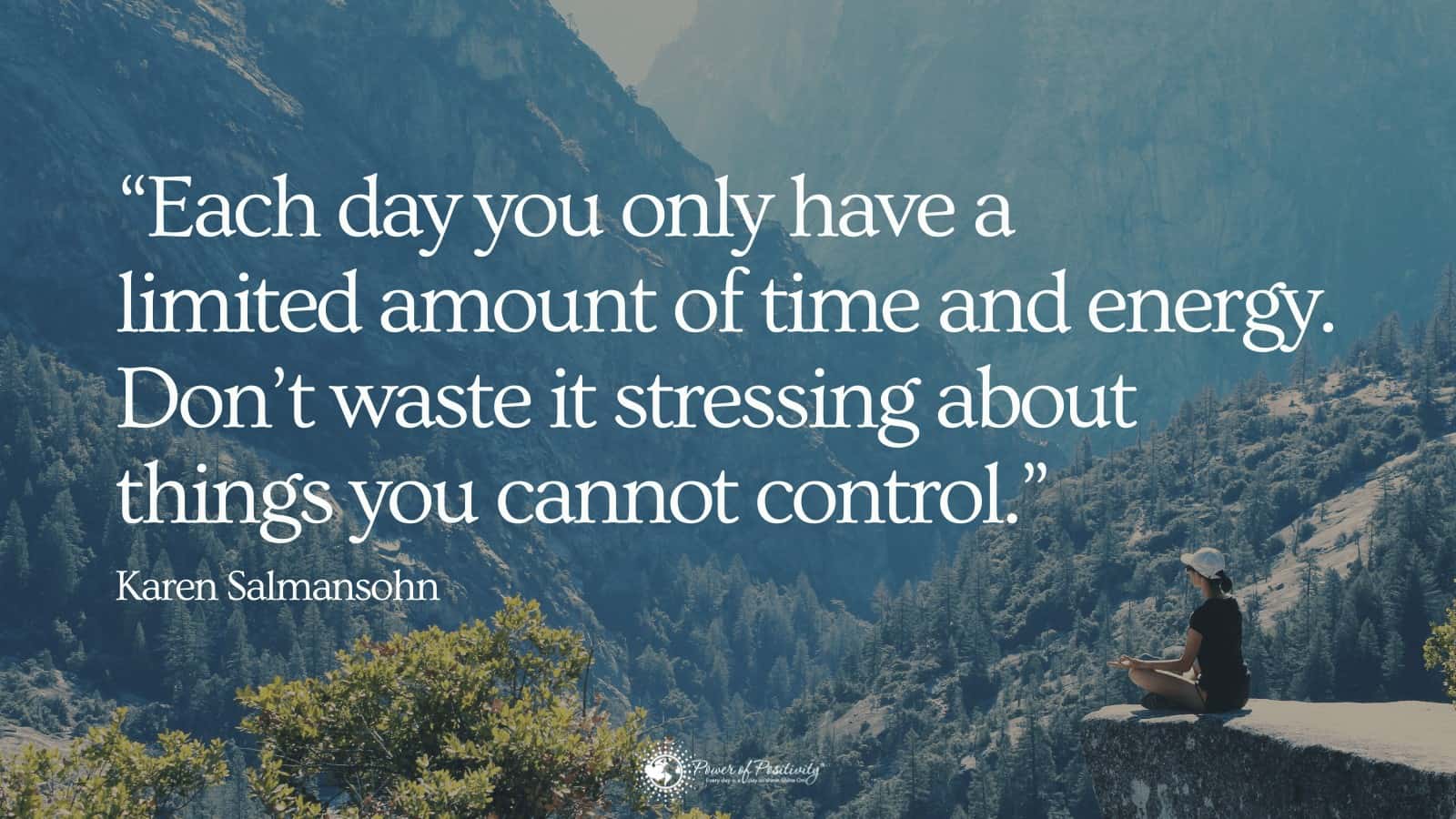Work-related stress is common, and many people experience it each day. While it might seem unharmful because of how common it is, it can be detrimental to your health. You’ll experience health issues now, but you’ll also encounter more in the long run if you don’t decrease it.
Having a job comes with daily requirements, and sometimes it demands more resources than you have available. While humans are generally adaptable, increased demands over time can cause many problems for your mental and physical health. Eventually, your brain becomes too exhausted to adapt to the emotional strain anymore.
You might receive a last-minute project that you must finish right away, or maybe the e-mails won’t stop rolling in. The phones might be ringing non-stop, your schedule is full of meetings, or a co-worker doesn’t do their portion of a shared assignment. Whatever the situation is, it can wear on you if it causes strain at work.
With constant work tension, people struggle to maintain a balanced life. The imbalance contributes to the health effects and can cause you to develop bad habits. Find a balance between your career and relationships and your workplace and personal time.
Why Your Body Suffers Negative Consequences from Work-Related Stress
Your body and mind respond to each stressor, even if you try to ignore them. When your body responds, it activates the fight-or-flight response, making your heart rate and breathing quicken. It’ll also cause your muscles to tense, and anxiety can quickly kick in, too.
While occasional stress is okay, it’s not healthy if it occurs daily. Research shows that 60% of Americans list work as the cause of their distress, and some are at a higher risk. People who work in high-demand jobs have extended hours or experience economic insecurity suffer more.
Your mind and body both need a break, and constant overwhelm doesn’t allow for it. Even worse, you won’t have time to overcome one stressor before experiencing another one. It eventually becomes too much, and you won’t fare so well.

What is Work-Related Stress
Work-related stress can come in many forms. From having a heavy workload to having a cruel boss, anything can fit if it causes you overwhelming frustration. If it occurs at work or as a result of work, it’s work-related stress. This type of tension in the workplace is more than occasional frustration because it’ll become unrelenting.
Sometimes your co-workers can be the cause of your suffering. If you work with people that insult or belittle others, it can quickly wreak havoc on your health. Backstabbing can erode your morale, too, as the toxic work atmosphere will be hard to handle.
Other situations like continually having your hard work go unnoticed can cause frustration. Likewise, when someone undeserving gets a promotion, and you don’t, it might make you feel upset. Another situation that can contribute to your distress is feeling unheard by your superiors.
Common Causes of Work-Related Stress:
Some of the other issues that can cause stress from work include:
- Lack of job security
- Feeling constantly connected to the office
- Not getting enough hours
- Ageism
When the tension is too much for you to handle, you might have trouble sleeping, making you feel flustered, irritated, or anxious. If you constantly worry about what you have on your plate, it’s a sign that your work life is causing too much hardship.
Employers face issues when their employees experience overwhelming pressure, too. It can cause employees to become less productive, and it can cause high rates of absenteeism.
While it’s essential to have a job to pay your bills, you must be careful of harming your health. If you think it’s taking a toll on your health, it might be time to look for something new. However, first try to find ways to address and overcome the issues are your current job.
Signs You Have Too Much Work-Related Stress
Sometimes, the signs of workplace tension are clear, and you’ll know right away. These signs include heart palpitations and anxiety upon entering the workplace. Other times, the warnings are subtle, and you might not realize that it’s affecting your right away.
Some of the less obvious signs include:
- Constantly feeling depressed
- Easily irritable or distressed at work and home
- You suffer from fatigue but still can’t sleep
- Difficulty concentrating
- Lack of interest in things you once loved
- You get sick more often
- Lack of sex drive
- Turning to alcohol or drugs to cope
- Inability to relax
- Trouble making decisions of thinking logically
- No longer enjoying work or decreased commitment to it
How Work-Related Stress Damages Your Health
Here are some of the surprising consequences of stressors on the job.
1. It Causes Burnout
Chronic work tension leads to burnout, a psychological syndrome. The warning signs of this syndrome include overwhelming exhaustion, cynicism, and a feeling like you can’t do anything up to your standards.
When you have too much work or little independence at work, burnout can quickly occur. Likewise, inadequate pay, lack of community, unfairness, disrespect, and workplace values that differ from yours can play a role, too.
2. It Can Affect Your Mental Health
Long-term exposure can take a toll on your mental health. Research shows that burnout, heavy workloads, and extreme pressure at work can cause intense anxiety and depression.
When you feel this way, it triggers your sympathetic nervous system to prepare for a fight or flight response. Your body secretes the same hormones as it would during a life-or-death situation. It releases the hormones cortisol, adrenaline, and norepinephrine.
As these hormones get released into your bloodstream, your heart rate speeds up. It also increases alertness, makes you sweat, causes unnatural breathing patterns, and more. Before you know it, your anxiety will be in full swing as you struggle through another workday.
Those hormones also contribute to depression. With a lack of positive moments at work and an increase in hormones, depression can set in quickly.
3. Increases Your Risk of Developing a Disease
High levels of workplace tension increase your risk of developing diseases. When your fight or flight system activates too frequently, it disrupts bodily systems. The disruption increases susceptibility for conditions such as autoimmune disorders, cardiovascular disease, and Alzheimer’s.
Studies show that working in an unfair environment can increase your risk of heart disease. If you aren’t sure what it means to work in a fair environment, you notice the following:
- Bosses who consider employee’s viewpoints
- Truthfulness
- Employees included in decision-making
- Equal treatment
Additionally, chronic emotional hardship interferes with your lifestyle choices that affect your disease risk. You might not get enough exercise, eat a balanced diet, or get enough sleep. The fight or flight response also increases blood glucose levels. When this happens often, it can make it difficult to control diabetes.
4. Raises Cholesterol Levels
Research shows that those who experience more emotional situations also exhibit increased cholesterol levels. An increase can trigger the body’s inflammatory processes, affecting your behavior and health.
Increased cholesterol levels can stop you from doing what you know is best. You’ll make decisions you wouldn’t have otherwise, including ones that are detrimental to your health.
5. It Damages Mental Processes
Long-term tension at work can interfere with your ability to concentrate. When you’re overwhelmed with work, it causes you to multitask. However, multitasking isn’t beneficial to your concentration.
Frequent multitasking teaches your brain to jump from one task to another. You’ll be constantly distracted, even when you must focus on only one thing. Your attention span will decrease the more often you try to multitask at work.
As your attention span decreases, your memory will, too. Remember that retaining information requires focus, so if you can’t focus, you won’t remember anything you heard or saw.
How to Decrease Work-Related Stress
Now that you know how it damages your health, it’s essential to learn how to decrease it. There are many ways to do this, helping you live a happier, healthier life.
Build Positive Relationships
If you build relationships with a few positive people at work, you’ll experience less distress. Studies show that workplace friendships improve job satisfaction, promote productivity, and increase commitment.
Stay Active
Moving around during the day can decrease negative feelings and fatigue. It also eases other negative emotions, helping you stay positive each day. Take a minute to stretch your legs every hour by walking around the office or taking the stairs.
Stay Organized and Prioritize Tasks
When you feel like you’re doing many things at once, take a moment to reorganize. Prioritize the most critical tasks and get started on those. Everything else can wait until later so you don’t feel like you’re in such a time crunch.
Find Something to Laugh About
Look for humor in every situation, especially if negativity creeps in. Laughing during stressful times can ease the negativity and make things seem less severe.
Practice Mindfulness
Practicing mindfulness means paying attention to the present moment. Focus on being curious, open, and accepting of everything around you. It helps reduce tension, depression, and anxiety while also helping you break harmful habits.
Final Thoughts on Ways Work-Related Stress Damages Your Health (and How to Decrease It)
Understanding the health risks associated with work-related stress can help you live a healthy life. Don’t let tension at work take over your entire life. Find ways to cope with it, and look for strategies to overcome the issue.
If you feel like you have tried everything, it might be time to move on. Consider your options and see what would be best for your health and well-being. You deserve happiness, and that includes when you are at work. Figure out what you must do to decrease tension in the workplace so that you can be healthy and happy.
The post 5 Ways Work-Related Stress Damages Your Health (and How to Beat It) appeared first on Power of Positivity: Positive Thinking & Attitude.





